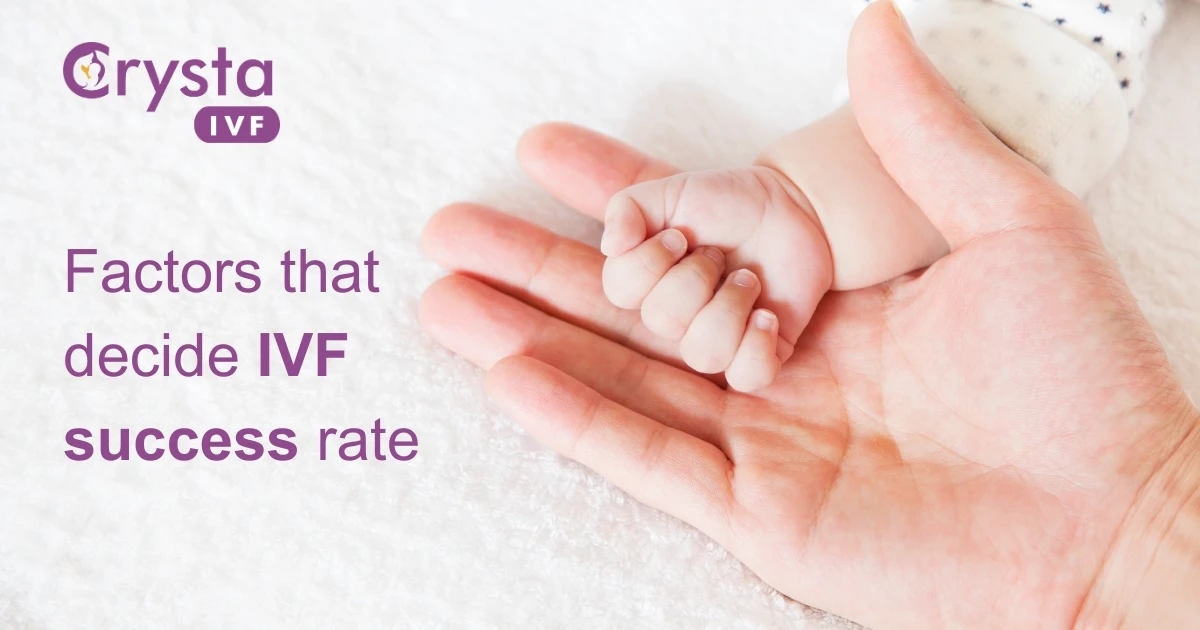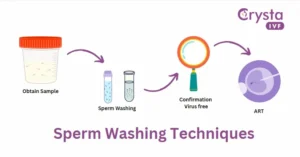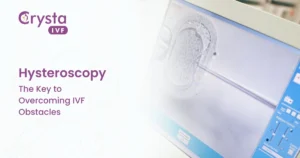With the rising fertility complications and sedentary lifestyle, the need to opt for the in-vitro fertilization process is increasing. Since IVF treatment is costly and time-consuming, it becomes essential to increase the IVF success rate. In-vitro fertilization (IVF) is a multi-faceted fertility treatment that relies on precise timing and accuracy. So, if you have already discussed this with your doctor and have decided to opt for IVF treatment, this is the right time to examine the factors affecting the IVF success rate in India.
However, before proceeding further, it is also significant to learn comprehensively about IVF treatment. So buckle up, and let’s get started.
Understanding IVF: A closer look at In-vitro fertilization
Stands for In-vitro fertilization, IVF is a specialized medical procedure that aims to help couples overcome their fertility challenges so that they can plan for a healthy baby.
This treatment involves the extraction of mature eggs and healthy sperm to combine them outside the human body in a laboratory setting to facilitate fertilization and subsequent embryo development.
IVF treatment is considered one of the most vital fertility treatments, and to make sure its outcome turns successful, we will explore the factors that affect its success rate.
What are the factors affecting the success rate of IVF in India?
Several factors can influence the success rate of in IVF in India. It’s important to note that success rates can vary between clinics and individual cases, but here are some common factors that can impact IVF success:
Age
The woman’s age plays a major role in determining the success of an IVF procedure. With a 60–65% IVF success rate under 35 are for women. In this period, women are at their peak of fertility. And when the age increases, the success rate starts to drop simultaneously due to lower egg quality and quantity.
On the other hand, the IVF success rates over 40 to 45 are for men. Hence, deciding IVF success rate by age is crucial; it is best to consult a renowned fertility expert for a better understanding.
Type of fertility problems
IVF is a smooth process for couples who face a range of common fertility-related problems. For instance, in women problems such as blocked fallopian tubes, endometriosis, and PCOS. While in men, low sperm count, motility, and morphology are generally tackled with IVF treatment. However, other fertility complications, such as fibroids, uterine abnormalities, and ovarian dysfunction, are more challenging to overcome with only a single IVF treatment. So to boost the IVF success rate on the first attempt, other surgeries and donor programs must be adopted.

History of Previous pregnancy
A couple who has had a successful pregnancy outcome in the past indicates a better and higher possibility of a positive pregnancy with the In-vitro fertilization treatment. On the other hand, a medical history of multiple or recurrent miscarriages, and severe fertility issues can make IVF more difficult and reduces the likelihood of IVF success rate in the first attempt.
Transfer of embryos
According to the best IVF experts, the embryo procedure is one of the most delicate and important aspects of the entire IVF treatment. So, to increase the chances of IVF success, a flawless transfer is essential in addition to a viable embryo and an effective uterine implant. Even a single mismatch with the timing issue can jeopardize the transfer process and decrease your embryo transfer success rate.
Uterine receptivity
This is as significant as embryo quality. Quite similar to planting a seed, if the quality of the seed or soil is compromised anyhow, The outcome of cultivating a healthy plant will be reduced. Just like that, various factors can affect your pregnancy, such as uterine lining thickness, immunological factors, and the uterine cavity’s contour. So, be careful, consult your doctor, and do every possible thing to make sure you have a successful pregnancy.
Patient’s lifestyle
To elevate your IVF results, a thriving and healthy environment is essential for you. If you have made up your mind after checking several parameters, you should quit smoking and consuming alcohol for at least three months before starting the treatment. You can also manage stress, balance your diet, reduce weight, and include physical activities in your daily routine. All of these lifestyle factors have a major impact on your hormones and your ongoing fertility treatment.
Mental Health
IVF is a long process and can affect your mental health too. With too many steps to take like a rollercoaster ride, there is a higher chance that IVF treatment deals with your mental health. The health changes and medications given during the IVF treatment given to women can increase the risk of anxiety and depression. Also, the risk of failure can make IVF an altogether mentally draining experience.
Also read: Yet Another Research Confirms-Stress and Female Infertility are Related
Fertility clinic
No doubt, fertility clinics are one of the external factors that help determine the success rate of IVF treatment in the first attempt. The clinic chosen by the couple for their treatment Numerous factors that affect the success of an IVF cycle has a direct connection to the fertility clinic. With the inclusion of its expertise, protocol, and technology, from the lab’s success rates to laboratory standards, including air quality, and the experience of the embryologists.
Except for these above-listed factors, there are some misconceptions among individuals regarding the factors affecting IVF success and failure. Let’s study them carefully.
Increased cancer risk
According to medical research, there is no connection between cancer and IVF. Women can undergo many fertility treatments without any risk of getting cancer. Although in some cases, artificial reproductive procedures can result in ovarian cancer, the chances of which are almost negligible.
IVF has a 100% success rate
This is the biggest myth! The IVF success rate in India is only around 40% in couples below 35 years of age. Moreover, positive IVF results depend on the factors that we have discussed above.
IVF pregnancies cause cesarean births
There is no proof that all IVF pregnancies result in cesarean births. Women who tried for many years to have a baby but failed to attain a natural pregnancy can also have a normal vaginal birth even with IVF treatment. So, after you have studied carefully about the IVF treatment and still want to opt for it, all you need to do is understand these factors about your health condition.
One IVF failure puts a full stop
When a couple fails in the first IVF treatment, it doesn’t mean that they do not get success in the process. Firstly, the reasons for IVF failure need to be understood, and consultation with the IVF doctor should be made.
To know more about the associated myths and to separate them from fact, read this informative article IVF Myths and Facts: Breaking the Stereotype Around IVF
Consultation is the key; talk to an IVF specialist now!
IVF is not an easy process; instead, it is a tricky one. With too many ups and downs, IVF’s chances of success can be influenced by many factors. However, it is substantial to notice that the IVF success rate and the factors affecting it are not universal; they can vary from individual to individual. So, in these circumstances, it is best to consult with an IVF expert at the best IVF clinic in Delhi, Crysta IVF.
Dr. Nidhi Sehrawet, infertility specialist in delhi with approximately two and a half decades of experience, will follow a personalized approach to make sure the best possible results are achieved.
Apart from that, the panel of fertility experts will stand with you from; the moment you visit the IVF center to the time you get positive news. The fertility team of experts makes sure you get the best experience to overcome all fertility challenges.




